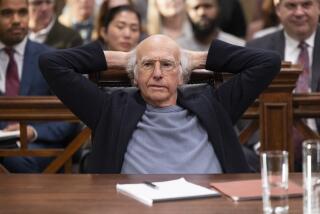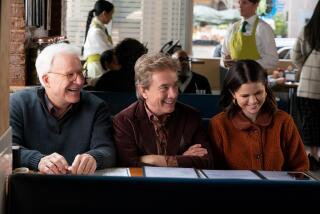âBreaking Badâ: Did Walt deserve a triumphant ending?
The âBreaking Badâ finale left little to the imagination, allowing Walter White, the showâs anti-hero, to swoop back into town to tie up loose ends in an adrenaline-fueled, action-packed episode that ended on his terms -- just the way he planned to all the way back in season one. Whether the ending was satisfying, however, depends on your worldview.
âIâm really surprised by how I feel about the finale. I expected to be sad. But Iâm giddy -- thrilled that the best drama in television history didnât blow it at the end,â wrote The Wrapâs Tim Molloy.
The New Yorkerâs Emily Nussbaum, on the other hand, would have preferred a quieter, more psychological ending. âI mean, wouldnât this finale have made far more sense had the episode ended on a shot of Walter White dead, frozen to death, behind the wheel of a car he couldnât start?â she asks. âWalt succeeded with so little true friction -- maintaining his legend, reconciling with family, avenging Hank, freeing Jesse, all genuine evil off-loaded onto other, badder bad guys.â
PHOTOS: âBreaking Badâ scenes | Every season, every episode
Did Walt deserve a triumphant ending?
Thereâs no one way to read âBreaking Bad.â For Walt-sympathizers, the show is a meditation on what can happen in a country that doesnât care for its sick people, that doesnât place enough value on its teachers, that divides people into haves and have-nots, that stirs resentment, that leaves ordinary people with a sense of hopelessness. For fans of Walt, it makes sense that a dying man wants to regain some control of his life and leave a legacy, so they let him off the hook.
âSometimes I feel like I never actually make any of my own choices. I mean, my entire life it just seems I never had a real say about any of it,â Walt tells his family in the first season. âFor what time I have left, I want to live in my own house. I want to sleep in my own bed. I donât want to choke down 30 or 40 pills every single day, lose my hair, and lie around too tired to get up, and so nauseated that I canât even move my head. You, cleaning up after me. Me, some dead man, some artificially alive, just marking time. No. Thatâs how you would remember me. Thatâs the worst part.â
The irony is that for him, his terminal cancer diagnosis isnât a death sentence. Itâs permission to start living again. And is it any wonder that Walt, a high school chemistry teacher turned drug kingpin, finds his version of redemption off-the-grid in a world that hasnât let him down?
Todd Van Der Werff, however, calls foul on the notion that Walt is a victim, arguing that heâs a classic example of white male privilege. From Salon:
Waltâs justifications for why he should have what he wants stem almost entirely from believing that heâs owed in some way, that the universe has screwed him over. Yet when the series begins, he has a pretty good life. He has a beautiful wife, a loving son, a baby on the way, and a house with a swimming pool. Maybe he doesnât like either of his jobs, but who does? And when he gets cancer, old friends who feel a debt to him offer to pay for the treatments. Yet all Walter needs is the slightest provocation to look around himself, reach out for anything within reach, and cry out, âI want that!â like a spoiled toddler. [âŚ]
Walter White was a smart, capable guy who expected, at some level, to be rewarded simply for being a smart, capable guy. And why wouldnât he expect that? He lives in a culture that regularly rewards men who look like him simply because of who they are, rather than any other particular qualities. The genius of âBreaking Badâ lies in the fact that it can look with clear eyes at this privilege and entitlement and can see that even when Walter has millions upon millions, it will never be enough. Itâs the center of the showâs portrayal of the American white guy psyche, the man always pointing at something somebody else has and saying, âGimme that!â
In the end, after he ensures his family will receive his money, but before he kills anyone who may interfere with his legacy, Walt stops by to see his wife and, in a moment of truth, finally admits: âI did it for me. I liked it. I was good at it. And I was really ... I was alive.â
When you consider all of the lives Walt, the greedy, frustrated white man, destroyed just so he could feel alive, it does make you wonder for a moment whether heâd have been better off with an anti-climactic, Nussbaum-ian ending.
ALSO:
Government: When push comes to nudge
Sharing the Road: Can L.A. be a cyclistâs town?
Follow Alexandra Le Tellier on Twitter @alexletellier and Google+
More to Read
A cure for the common opinion
Get thought-provoking perspectives with our weekly newsletter.
You may occasionally receive promotional content from the Los Angeles Times.










